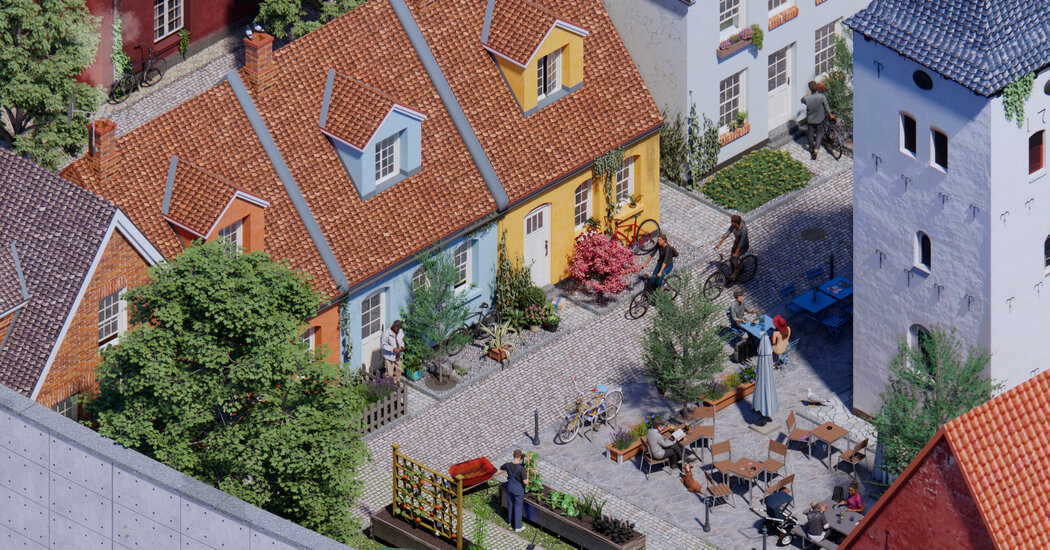In Age of Right-Wing Populism, Why Are Denmark's Liberals Winning?

```html
Denmark's Defiant Liberals: A Success Story in an Age of Right-Wing Populism
A Carrot, Kyiv, and a Contrarian Path
Picture this: Danish Prime Minister Mette Frederiksen, fresh from a clandestine trip to war-torn Kyiv, enjoying a simple baby carrot. It's a seemingly mundane detail, but it sets the stage for a fascinating story of political defiance.
Frederiksen's visit marked the 1,000th day of Ukrainian resistance against Russia, a poignant milestone coincidentally falling on her birthday. Denmark's extraordinary support for Ukraine, exceeding that of any other nation relative to its economy, highlights the country's unconventional approach.
The Danish Anomaly: Progressive Policies and Electoral Victories
While much of the Western world grapples with a rising tide of right-wing populism, Denmark’s Social Democrats, led by Frederiksen, offer a stark contrast. They've achieved a string of progressive policy wins that read like a liberal wish list: earlier retirement for blue-collar workers, curbs on private equity's housing speculation (the "Blackstone Law"), a pioneering livestock carbon tax, expanded abortion access, and a robust welfare state.
And here's the kicker: they've achieved all this while maintaining a healthy economy and winning re-election, defying the global anti-incumbent trend.
The Immigration Question: A Departure from the Global Left
Denmark’s success story comes with a twist. In the face of past migration surges, Frederiksen and her party adopted a more restrictive immigration stance. They advocate for lower immigration levels, robust integration efforts, and swift deportation of illegal entrants.
"Being a traditional Social Democratic thinker means you cannot allow everyone who wants to join your society to come," Frederiksen explains. She argues that high immigration levels strain public resources, exacerbate inequality, and erode social cohesion, the very foundation of a sustainable welfare state.
This stance has drawn criticism, but Frederiksen maintains it’s a principled position, not a political maneuver. "There is a price to pay when too many people enter your society," she insists, "and those who pay the highest price are the working class."
The Global Migration Dilemma and the Brahmin Left
The world is grappling with unprecedented levels of migration, driven by a complex mix of factors, including declining poverty, improved transportation, and social media connectivity. But perhaps the most significant catalyst has been the loosening of immigration rules in many Western nations.
Thomas Piketty’s concept of the “Brahmin Left” illuminates a shift within progressive thought. This more affluent, academic brand of progressivism often champions open borders, prioritizing the benefits for newcomers while overlooking the potential downsides for existing working-class communities.
A Danish Bricklayer's Perspective
Mattias Tesfaye, Denmark's education minister and son of an immigrant, offers a compelling perspective. His journey from a far-left, pro-immigration activist to a Social Democrat championing stricter controls illustrates the evolving nature of the debate.
Tesfaye's book, tracing the history of immigration in Denmark, argues that the left's embrace of open borders has alienated its working-class base. He cites historical data showing that Danes, particularly blue-collar workers, consistently expressed concerns about high immigration levels, concerns that were frequently dismissed by the political establishment.
Rethinking the Left's Approach
Denmark's experience presents a challenge to left-leaning parties worldwide. Can a more restrictionist border policy be reconciled with progressive values? The Social Democrats' success suggests it's not only possible but perhaps even necessary for rebuilding trust with working-class voters.
The Danish model isn't without its controversies, particularly regarding integration policies targeting non-Western communities. But it has undoubtedly resonated with voters, marginalizing the far right and allowing the Social Democrats to focus on a broader progressive agenda. As other nations wrestle with the complexities of immigration, Denmark's experiment offers a thought-provoking alternative.